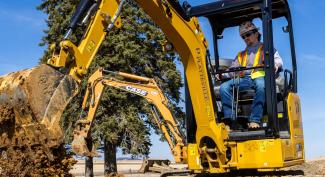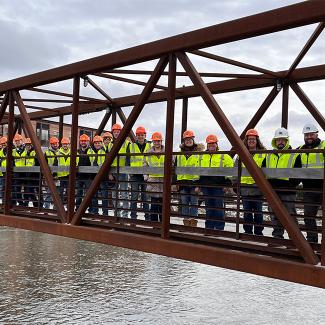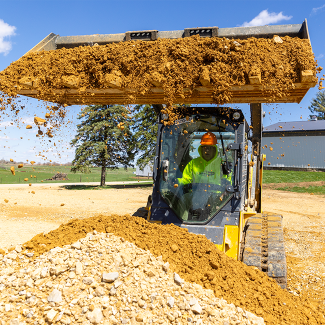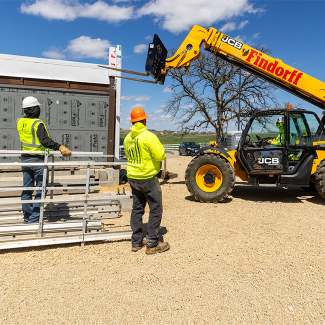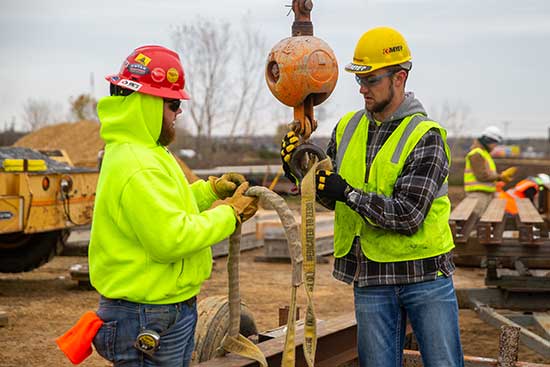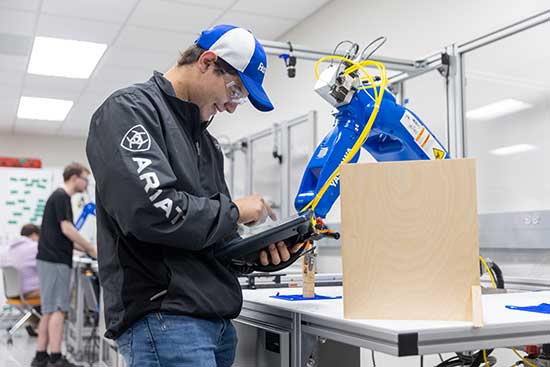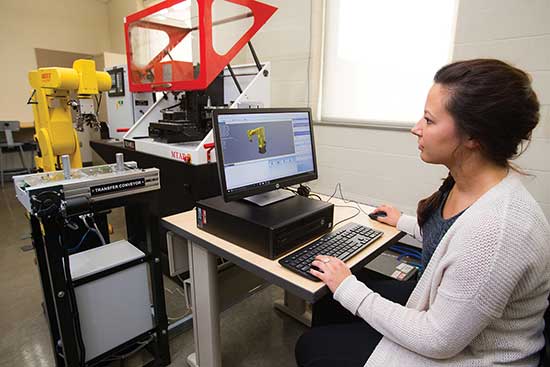What you'll learn studying Construction Management at UW-Platteville
At the University of Wisconsin-Platteville, our construction management degree is built to meet the demand for residential, commercial, and infrastructure projects, which continues to rise globally. As part of the UW-Platteville Department of Applied Engineering Technology Management, this program delivers a powerful combination of science, engineering technology, and business management. You’ll develop in-demand skills in project planning, budgeting, scheduling, safety, and leadership.
You’ll also learn in cutting-edge laboratory environments, including our Construction Lab, Road and Infrastructure Lab, and Safety Lab. These spaces support hands-on learning and simulate real-world construction project conditions. Led by faculty with extensive industry experience, the program ensures students are prepared for the complexities of construction project management across various sectors.
Through our curriculum, you’ll gain the technical, managerial, and problem-solving skills that employers value—skills that set you apart in a competitive job market. You can also enhance your construction management major with a minor in construction safety management, business administration or architecture, broadening your career options in fields like civil engineering, sustainability, or commercial development.
Whether you're aiming to become a construction manager, project manager, or field engineer, our construction management program gives you the foundation to lead projects, build strong teams, and help shape the future of the built environment.
If you're passionate about construction, leadership, and innovation, we invite you to explore how UW-Platteville can help you build your future—one project at a time.
Careers in Construction Management
A career in construction management involves much more than coordinating tasks on a job site. It requires leadership over every phase of a construction project—from budgeting and scheduling to regulatory compliance and collaboration with clients, contractors, and design teams. Construction managers are responsible for bringing projects to life while ensuring they are completed safely, on time, and within budget.
UW-Platteville’s construction management degree prepares graduates to succeed in a wide variety of roles across both public and private sectors. Whether working in commercial development, residential and multifamily building, or heavy highway construction, students graduate with the skills and experience to take on leadership roles immediately after completing the program. The curriculum is designed to reflect the real-world demands of the construction industry, making our graduates highly sought after by employers across the country.
Career paths include:
- Construction manager
- Estimator
- Field engineer
- Heavy highway construction specialists
- Project engineer
- Residential and multifamily builders
- Scheduler
- Site supervisor
- Sustainability consultant
Graduates are well-prepared for both generalist roles—managing a wide range of construction projects—and specialist positions focused on specific sectors such as infrastructure, sustainability, or large-scale development. Many states also require construction managers to obtain certifications, and UW-Platteville helps you meet that need through targeted coursework and credentialing opportunities.
Certification
This degree program also offers pathways for certification. The minor in construction safety management is a Board of Certified Safety Professionals (BCSP) Qualified Academic Program, and graduates are eligible for the Graduate Safety Practitioner (GSP) designation.
Through the program, students earn the OSHA 30-Hour card and may complete up to 10 additional industry-recognized safety certifications, demonstrating advanced competency in construction safety. These credentials, paired with a high job placement rate and an competitive salary, make this degree a smart investment in your future and a pathway to long-term career growth.

More than Memorization
UW-Platteville stands apart from other construction management schools through its student-centered approach to learning. Students learn in the classroom, but also have access to research opportunities, internships, and university events. This unique approach means that graduates don't just leave with a degree, they leave with a resume full of experience, and often with multiple job offers.
